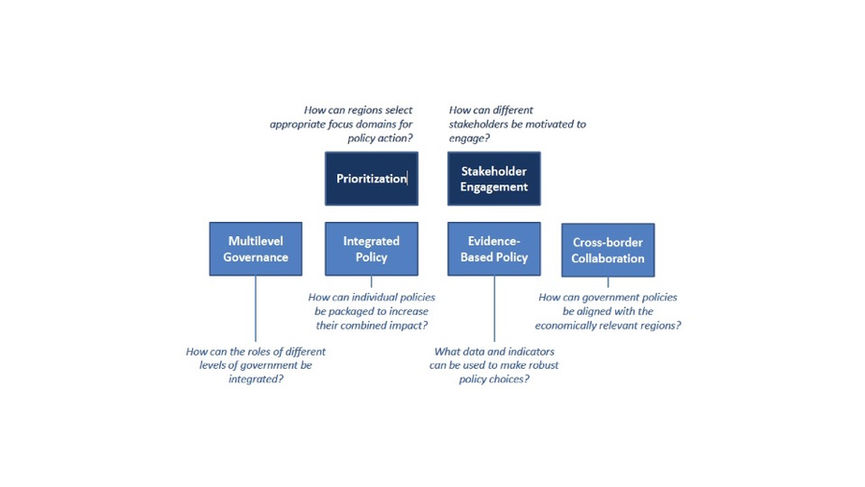Initiatives
It is a methodology adopted by the European Union and promoted by organizations such as the World Bank and the OECD to promote the economic development of a region based on its vocations and resources (under the simple premise that a region cannot be a specialist and competitive across everything).
According to D. Foray:
-
It is not a planning doctrine that requires a region to specialize in a particular set of industries
-
It is an approach to policy that considers whether those activities that are already strong or show promise for a region can benefit from R&D and innovation
-
The regions must focus on certain domains of knowledge, but being focused is not enough, they need to develop distinctive and original areas of specialization (not imitating each other)
-
Smart specialization is very much about the political process of selecting and prioritizing fields or areas where a group of activities should be developed: allowing entrepreneurs to discover the correct domains of future specializations

According to the National Council of Science and Technology of Mexico: "Regional development policies encourage the growth of the entire national territory, considering that the high performance of a region has positive repercussions on neighboring regions, while the low performance of these can affect negatively in the production system as a whole. … It has been shown that technology-based ventures create virtuous circles, generating high profit margins and employing highly qualified personnel with more competitive salaries. The above factors have an impact on the availability of resources, making the economy more dynamic, although their existence does not depend solely on the growth of capital and labor, but also on the technological change carried out at all levels, from the field of knowledge generation and transmission, up to its adequate application in the productive industry."
























